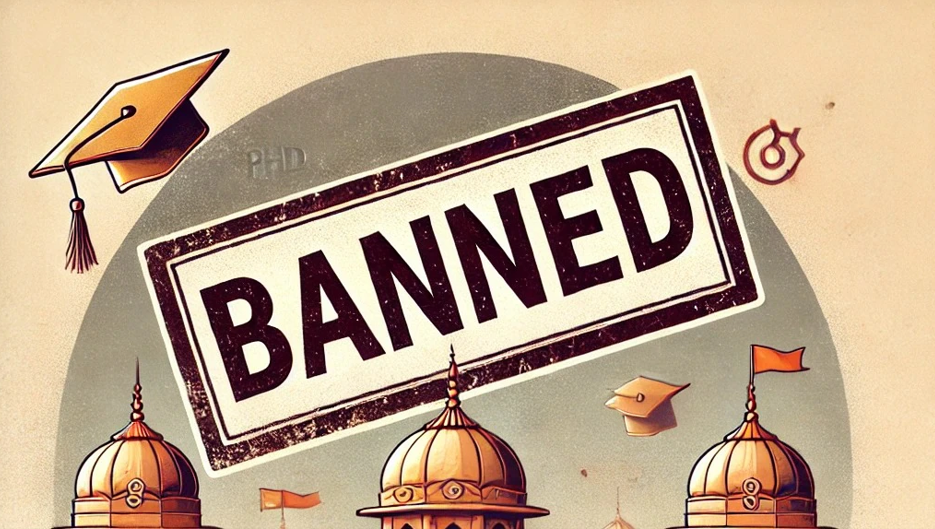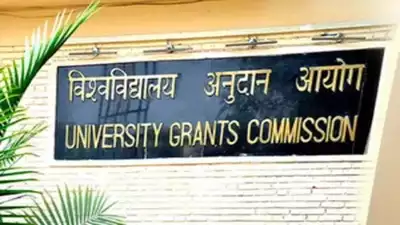17Jan

In an unprecedented move, the University Grants Commission (UGC) barred three private universities in Rajasthan from enrolling PhD students for five years, spanning the academic sessions from 2025-26 to 2029-30. This decisive action, where UGC Bans 3 Rajasthan Universities, impacts OPJS University in Churu, Sunrise University in Alwar, and Singhania University in Jhunjhunu, will face significant limitations during this period. The UGC Bans 3 Rajasthan Universities decision underscores the UGC’s strict stance on academic compliance and quality.

The UGC’s action stems from findings of a standing committee tasked with monitoring adherence to PhD regulations. This committee discovered that the three universities failed to meet the UGC’s PhD guidelines and academic standards. Despite being given opportunities to explain their non-compliance, their responses were unsatisfactory. Consequently, the enrollment ban was imposed.
As a result, prospective PhD candidates should refrain from enrolling in programs at these universities between 2025 and 2029. Degrees conferred by these institutions during this period will not be recognized for higher education or employment, in line with UGC directives.
UGC Chairman M. Jagadesh Kumar emphasized the importance of maintaining high standards in PhD programs. He pointed out that the UGC is closely evaluating the quality of PhD offerings across other universities. The commission will take necessary action against any institution found violating PhD regulations, aiming to protect the integrity and reputation of Indian higher education.
Moreover, the UGC’s vigilance is not limited to these three universities. Reports suggest that approximately 30 additional institutions are currently under scrutiny for similar non-compliance with PhD regulations. This evaluation highlights the UGC’s commitment to preserving rigorous academic standards throughout the country’s higher education system.
Ultimately, the UGC’s firm stance, exemplified by the action where UGC Bans 3 Rajasthan Universities, sends a clear message to all institutions: adherence to established PhD regulations is non-negotiable. Universities must maintain academic integrity to safeguard the quality and credibility of India’s higher education system. Therefore, prospective students should carefully research institutions, as highlighted by the UGC Bans 3 Rajasthan Universities decision, to ensure their doctoral degrees are recognized and hold long-term value.
For more updates on this developing story and other education-related news, stay tuned. If you’re embarking on your PhD journey, Kenfra Research is here to guide you every step of the way—from topic selection to publication. Contact us today for expert assistance!

UGC NET 2024 Notification: Get the latest on notification dates, results, eligibility, syllabus changes, and important updates. read more

Writing a PhD research paper outline is a critical step in organizing your thoughts and creating a roadmap for... read more

Choosing a PhD topic is not just about finding something you like. It’s about identifying a topic that is both... read more
Panel to ensure research is free from plagiarism at LU To ensure research is free from plagiarism at Lucknow University or... read more
After completing a PhD, there are many career pathways to consider. Here are the top 10 careers in India after... read more

Building Smarter Robots is quickly becoming one of the most exciting and impactful research areas for PhD scholars across engineering,... read more

Attending academic conferences offers many advantages for PhD scholars who want to improve their research and grow professionally. The benefits... read more

Embarking on a Ph.D. journey in research methodology can be both rewarding and intellectually stimulating. At Kenfra Research Center,... read more
WhatsApp us
Leave a Reply